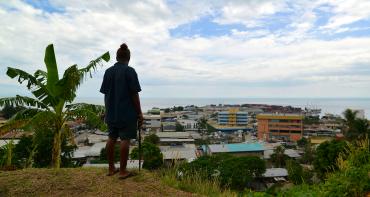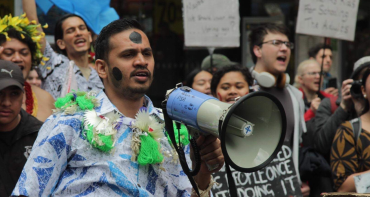Thirty one of the Commonwealth’s 53 member countries are small states including some of the most disaster-prone and climate-vulnerable nations in the world.

Thirty one of the Commonwealth’s 53 member countries are small states including some of the most disaster-prone and climate-vulnerable nations in the world.
Recent events show the magnitude of this threat, including, Hurricane Ivan which caused a damage equivalent to two years of Grenadian GDP, and Cyclone Pam which displaced 70 per cent of people in Vanuatu. In addition, the economic impact of disasters puts pressure on all sectors and worsens poverty, instability, and emigration.
The Commonwealth has long been a pioneer in the cause of equality and the rights of small states by advocating internationally on their vulnerability and distinctive sustainable development needs.
As the pace and scale of the threat rises, the development of small states is dragged down. The need for disaster risk reduction awareness and a disaster resilience framework is greater than ever.
The Commonwealth provides its small member states with technical assistance to implement the Sendai Framework for Disaster Risk Reduction, adopted in 2015 by 187 states at the UN World Conference on Disaster Risk Reduction in Japan. The Framework presents countries with a unique opportunity to collaborate on achieving resilience to global hazards. This is particularly pertinent to small states, helping them prevent hazards from turning into disasters.
The Commonwealth focuses on strengthening governance in disaster risk management, risk reduction and preparedness, as well as facilitating the sharing of expertise and resources. Currently, the Secretariat is working with development partners to develop innovative disaster risk financing tools to support disaster mitigation, and other response initiatives, which will contribute to the implementation of the Sendai Framework.



